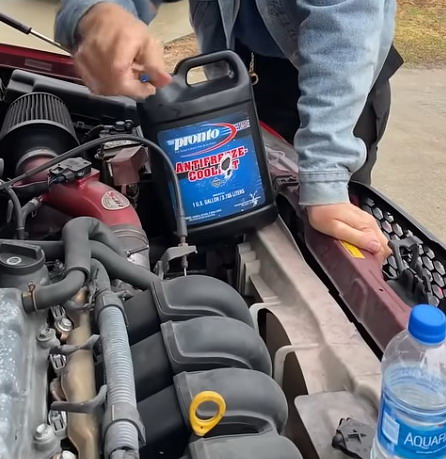AUTONEWS
Electric car sales gain pace despite hurdles
The electrification of the car industry is gathering pace, particularly in Europe, where the sale of new cars running on petrol and diesel will end in 2035.
But challenges remain around their production, affordability and whether enough infrastructure can be put in place to persuade drivers to make the switch.
China in pole position...China is a leader in the electrification of cars, with favorable policies helping sales to double in 2022.
But experts have warned they could slow.
"China's BEV (battery electric vehicle) growth will moderate in 2023, after a meteoric rise in 2022 of more than 100 percent year-on-year," said Al Bedwell, director of Global Powertrain at LMC Automotive.
"The country's slowing economy and unavoidable retail price increases will dampen Chinese BEV and plug-in hybrid demand, though much volume will still be added."
Automakers were hobbled in 2022 by a lack of semiconductors, the computer chips that are key for all types of cars.
But more than 1.1 million electric cars were sold in the European Union last year, up by a quarter to a record 12.1 percent share of the market.
Bedwell said the growth "will accelerate to 50 percent in 2023 as the chip crisis eases".
In North America, electric cars could represent seven percent of the market this year, with 1.3 million vehicles sold, according to industry analysts LMC Automotive.
The United States is giving its electric car industry a major boost with a $370 billion green energy bill that includes tax cuts for US-made electric cars and batteries.
In total, one in eight cars sold worldwide in 2023 could be electric.
Tesla dominance...Elon Musk's Tesla remains the biggest seller of electric cars globally, shifting 1.3 million units in 2022, driven by its Model Y SUV. It predicts a 37 percent increase this year.
But Chinese firm BYD has it in its sights.
The manufacturer almost tripled sales last year to 900,000 cars, and intends to develop in Europe and North America.
Chinese manufacturers like BYD or rival carmaker NIO are "the most competitive in the world, work harder and smarter", Musk said himself in January.
Traditional auto giants like Volkswagen and Stellantis group—which owns Peugeot and Jeep—are also stepping up their launches of electric models.
Luxury brands such as Rolls Royce and Ferrari are also planning to launch their first battery-powered models soon.
Even so, Japanese automaker Toyota has continued to defend hybrids, presenting them as more accessible and the only concrete solution for the energy transition.
Price war...Electric cars are on average much more expensive than their petrol equivalents, starting from about 35,000 euros ($38,000). This puts them out of reach for many drivers, despite heavy subsidies.
But Tesla announced price cuts of up to 20 percent in Europe and the US in early January, quickly followed by a similar move from Ford.
In Europe, manufacturers could follow a similar route to gain market share, but also in order to comply with increasingly stringent European CO2 emission standards, according to German analyst Matthias Schmidt.
"2022 was a problem of supply, (but) we're likely to see a complete switch," he said.
"If (manufacturers) start to panic, we're likely to see more and more cuts."
Producers could also react to Chinese manufacturers ramping up production, with plans to produce in Europe at a cheaper price.
Charging...Concern about battery life remains one of the main factors that deters drivers from switching to electric vehicles. Most are limited to a few hundred kilometers and recharging can take anything from 20 minutes to several hours depending on the terminal.
This means the development of a network of fast and accessible terminals for charging is crucial for longer journeys.
The EU will need 3.4 million charging points by 2030, according to a report by consulting firm McKinsey, with updated power grids to cope.
This could cost some 240 billion euros, with companies including Fastned and Ionity ramping up investment in charging stations.
by Taimaz Szirniks


Nenhum comentário:
Postar um comentário